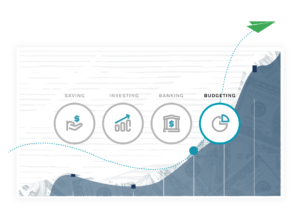Details Are Part of Our Difference
Embracing the Evidence at Anheuser-Busch – Mid 1980s
529 Best Practices
David Booth on How to Choose an Advisor
The One Minute Audio Clip You Need to Hear
Tag: Budgeting
Compounding Wisdom: Budgeting 101

This is the latest in our series of introductory “101” financial guides. Each guide reveals a set of wise actions as well as a set of behaviors to avoid. The goal? Help you make smart choices at every turn in your financial road trip. Your financial success will be exponentially enhanced when you make wise financial decisions repeatedly over a long period. This month’s focus is Budgeting, the center of your financial plan.
Compounding Wisdom: Budgeting
Compound Wisdom Actions
- Write it down – a budget is a formal, written monthly plan for your money, developed before you spend it.
- Liberate yourself – eliminate the guilt that comes with spending, knowing it was all part of the plan.
- Be patient – it takes three or four months of budgeting experience to feel confident in your plan.
- Toss the straitjacket – plan for fun, so your budget expands and doesn’t constrict your life.
- Keep it balanced – plan for all your needs, enough of your wants, and most of your savings.
- No leftovers – a zero-based budget accounts for every dollar of income, spending, and savings.
- Every dollar has a name – each dollar is either spent or saved and is assigned a category.
- Keep it simple – create a great budget with less than 20-30 categories.
- Keep track – track actual spending so you can adjust your plan for the next month as you improve.
- Minimize marital stress – it’s much easier to discuss money before it’s spent rather than after.
- Set it and forget it – using an automated tool is a painless way to plan and track your money.
Actions to Avoid
- Failing to plan is planning to fail – Don’t procrastinate; jump in, and start a monthly plan today.
- Too needy – don’t limit your budget to just the necessities – plan for family fun and relaxation too.
- What happened? – the plan has limited value if you don’t track your actual results and evaluate the plan each month or so.
- Cast it in stone – don’t treat your budget as a “read-only” document – update it often as life changes.
- Give up too soon – financial planning gets easier over time, but you must get through those first few months of learning and developing your plan.
- Mind the gap – don’t forget about planning for emergencies, gifts, vacations, large purchases, kid’s activities, and all those non-recurring one-off expenses.
Feel free to pass this along if you know someone who might benefit from the guidance and look for more from me in this monthly series.
I lead our Hillfolio level client service and planning efforts, learn more about me here and reach out if I can help you put the magic of compounding on your side.

